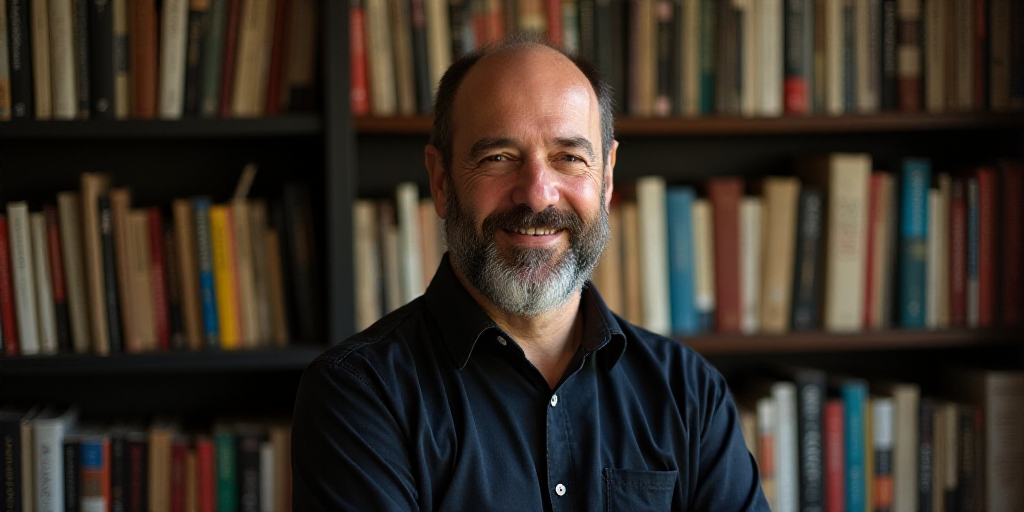Introduction
On May 13, Mexican novelist, essayist, divulgator, academic, and cultural manager Gonzalo Celorio Blasco will receive the 2025 edition of the José Vasconcelos Medal. The Seminar of Mexican Culture (SCM) bestows this award upon Mexican nationals who have dedicated their work to educational efforts in fields like science and culture. Celorio, the recipient of the prestigious Xavier Villaurrutia Prize for Writers in 2022, has shared his thoughts on the significance of this recognition and the legacy of José Vasconcelos.
Background on Gonzalo Celorio and José Vasconcelos
Gonzalo Celorio has had a prolific career as an author, scholar, and cultural manager. He has been associated with two prominent institutions led by José Vasconcelos: the Secretaría de Educación Pública (SEP) and the Universidad Nacional Autónoma de México (UNAM). Celorio worked at the SEP during the 1970s and is a UNAM graduate, catedrático, and admirer of Vasconcelos’s contributions to Mexican culture.
Institutions and their impact
The SEP, under Vasconcelos’s leadership, aimed to promote cultural dissemination across Mexico. Meanwhile, the UNAM, where Vasconcelos served as rector, transitioned from a Porfiriato to a post-revolutionary institution. Celorio believes both institutions embody Vasconcelos’s nationally inclusive and ecumenical spirit.
Vasconcelos’s Nacionalism and Cultural Universalism
Celorio acknowledges the complexity of Vasconcelos’s nacionalism, explaining that it was both particularistic and universalist. He fortified the revolutionary spirit and artistic expression while promoting cultural values that reflected Mexico’s diverse heritage.
Nacionalismo and Linguistic Diversity
Celorio reflects on the historical promotion of Spanish through SEP initiatives, which some critics argue led to the suppression of indigenous languages and identities. He emphasizes that Mexico’s linguistic diversity is integral to its national identity.
Nacionalismo in Contemporary Mexico
Celorio asserts that nacionalismo in Mexico must embrace cultural universality, as the country is a melting pot of diverse ethnicities. He advocates for acknowledging and celebrating Mexico’s multicultural heritage, echoing Vasconcelos’s concept of “la raza cósmica” (the cosmic race).
Previous Recipients of the José Vasconcelos Medal
- 1999 Ernesto de la Torre Villar, writer
- 2000 Miguel Huerta Maldonado, professor
- 2003 Gabriel Vargas Bernal, comic book artist (“la Familia Burrón”)
- 2004 Luis Herrera de la Fuente, orchestra director
- 2009 Elisa Vargaslugo Rangel, historian and writer
- 2010 Luis Ortiz Macedo, architect and researcher
- 2012 Carlos Prieto Jacqué, musician and writer
- 2013 Ruy Pérez Tamayo, medical doctor and science communicator
- 2021 José Sarukhán Kermez, biologist and former UNAM rector
- 2022 Josefina Zoraida Vázquez, historian and writer
- 2023 Juliana González Valenzuela, philosopher
- 2024 Luis de Tavira, playwright and essayist
- 2025 Gonzalo Celorio, writer and essayist
Key Questions and Answers
- What is Celorio’s opinion on the review of Vasconcelos’s figure and nacionalist educational ideology?
Celorio acknowledges the multifaceted nature of Vasconcelos, emphasizing that his nacionalism was dialectically linked to cultural universalism. He supported various groups, including the internationally oriented Contemporáneos generation. - Does contemporary Mexican identity accommodate nacionalism?
Yes, Celorio believes that Mexican nacionalism must embrace cultural universality, as the country is a multicultural society shaped by mestizaje.
Related Interests
For those interested in Mexican literary traditions, Gonzalo Celorio’s work and contributions offer valuable insights into the nation’s cultural landscape.






